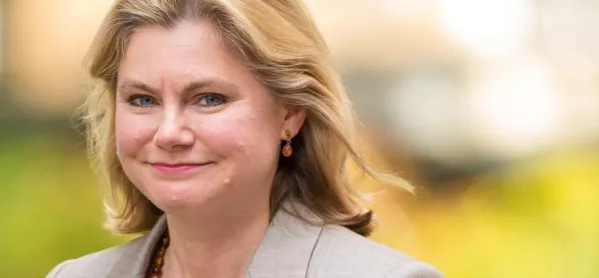Young people growing up today are more connected than ever before. Today’s technology gives them the chance to make friends with people across the world, to unlock a wealth of information at the click of a button and to express who they are on social media.
But while the internet opens up a world of opportunity, it also creates challenges that parents and teachers never had to face when they were growing up.
Sexting, cyberbullying and staying safe online are 21st-century problems that can have a deep and lasting impact on young people, at an important time as they grow up
Although the world around us has changed dramatically, the guidance for schools when it comes to teaching relationships and sex education (RSE) is firmly stuck in the past. That is why I am determined to finally update RSE so it’s relevant to life in modern Britain.
We want to make sure these lessons cover sexual health and risks, as well as teaching about consent and understanding boundaries, what a healthy and stable relationship looks like and how to stay safe in the real world and online.
Compulsory for every school
Up until now, only a third of all secondary schools have been required to teach RSE. That is why we have changed the law to make it compulsory for every school to teach this - including relationships education in primary school.
We are now giving young people, their parents and their teachers a chance to have their say on how RSE should be taught in schools and what it should cover, so we can make sure it prepares young people for life in modern Britain.
In an eight-week evidence gathering exercise, we will ask for views on what young people themselves think they would benefit from understanding the most, as well as speaking to parents about how we can teach this in a safe and age-appropriate way.
Crucially, we want to hear what teachers think about this - many of whom will be well versed in talking to their pupils about these sorts of issues, regardless of whether their schools formally teach this already.
Parents, pupils and teachers
I am delighted that executive headteacher Ian Bauckham will be leading this process. Ian is the CEO of the Tenax Schools Trust and executive head of Bennett Memorial Diocesan School in Kent and has 30 years of teaching experience.
He will be speaking to parents, pupils and teachers about what they think should be taught and what approaches are already working well in classrooms. I know that there are many views within this debate and we will look to make sure we hear from people of all backgrounds, faiths and beliefs as part of this process. I urge everyone to take this opportunity to have their say.
Together we can make sure that all young people learn how to stay safe and healthy and gain the knowledge, confidence and skills to navigate their way through their school years and their adult lives.
Justine Greening is secretary of state for education
Want to keep up with the latest education news and opinion? Follow Tes on Twitter and Instagram, and like Tes on Facebook




